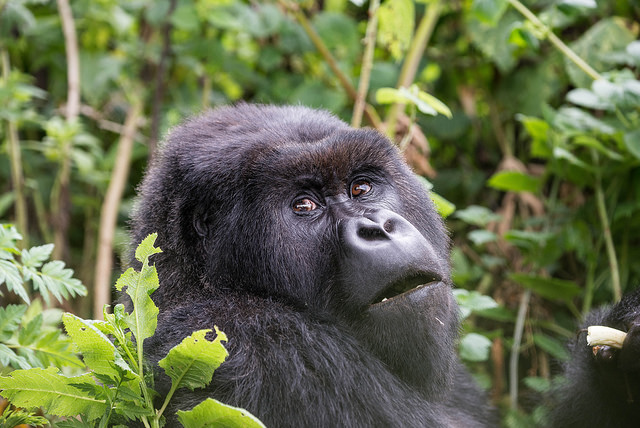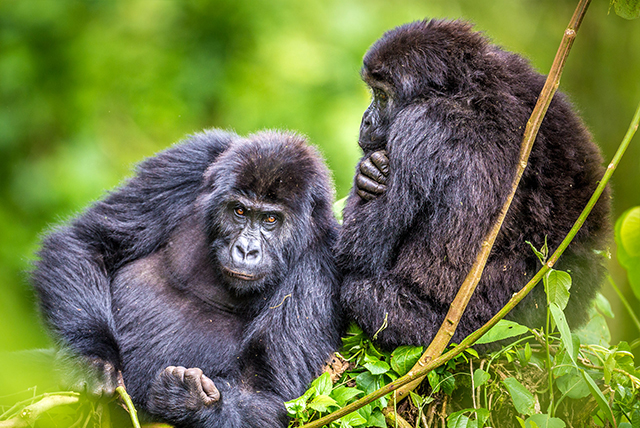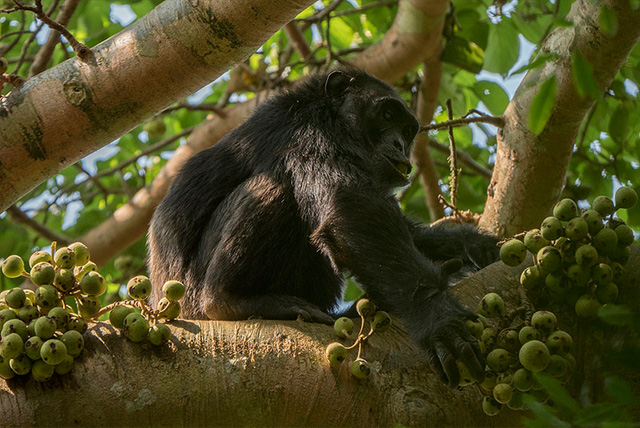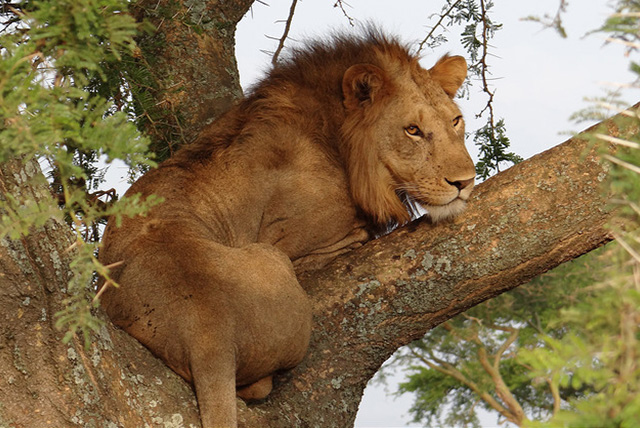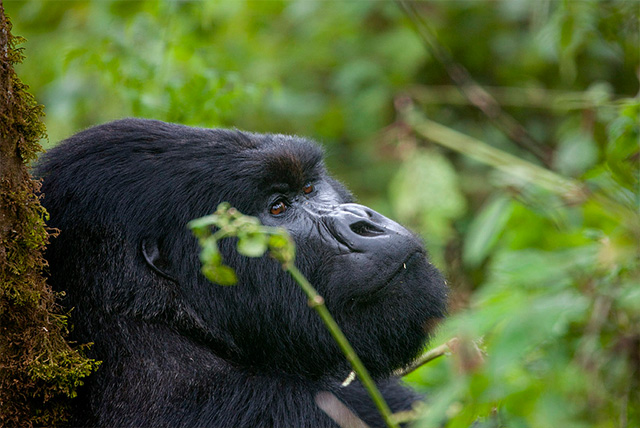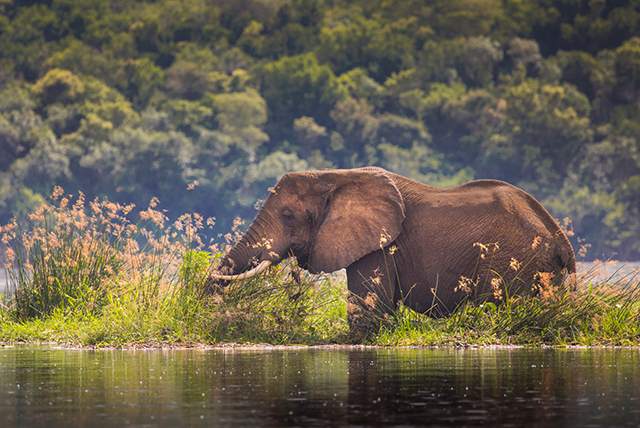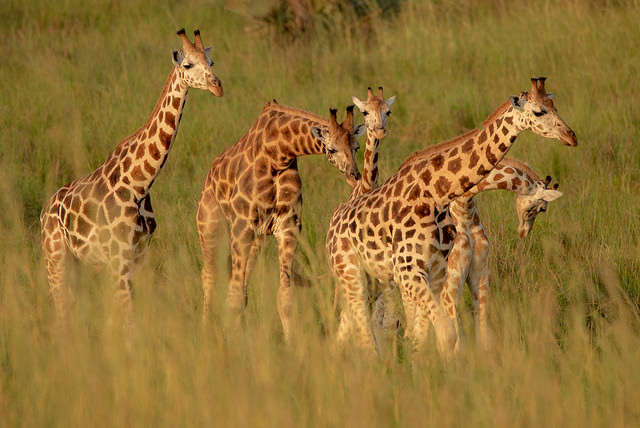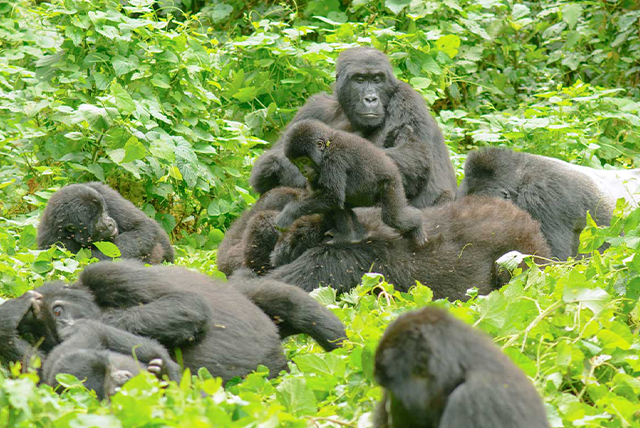How to Book Tanzania Safari
How to plan an exhilarating safari in Tanzania
All the insights you wish you had before making your reservation
What’s the ideal number of days for an unforgettable safari in Tanzania?
If you’re journeying from Europe or beyond, plan for a minimum of a week. A typical two-stop safari trip could involve three nights in the Serengeti followed by three nights in the Ngorongoro Conservation Area – three nights often provide a more leisurely experience compared to two, which allows for just one full day at a camp. Prepare for an exciting overnight stay in either Nairobi or Dar es Salaam, depending on your international flights.
Ten days to two weeks is an ideal duration if you’re looking to include a beach getaway in Zanzibar and explore more of the country – for instance, merging the northern and southern regions, or incorporating a chimp trekking adventure.
To reach the summit of Kilimanjaro, plan for a minimum of a week, including your arrival and departure days. Depending on the route you choose, it could take up to 12 days. Keep in mind that the quickest paths can pose risks because they don’t allow enough time for your body to adjust to the altitude. If you include a two- or three-night safari, you are considering approximately two weeks. Plan for an exhilarating three weeks that includes the complete Kili climb, an exciting safari, and the stunning beaches of Zanzibar.
What is the price of a safari in Tanzania?
For all-inclusive safaris, you might begin with a price of USD $4,000 per person for a seven-day adventure, with costs increasing for additional days or enhanced luxury options. If you are open to longer drives and comfortable with low- to mid-range accommodations, you might just bring that down to $2,500.
Traveling during off-peak times can help you save money. Venture to the Serengeti during the off-peak months, and you will discover lower prices on safari packages along with a more tranquil atmosphere.
The greater your investment in your safari, the more unique and varied your journey is likely to become. Luxurious lodging is not essential, yet pricier options frequently provide a wider array of experiences like nighttime drives and guided walks in private reserves, which tend to have fewer tourists compared to national parks. Additionally, they may offer unique excursions like visits to local communities.
Keep in mind that camps and lodges fill up fast, especially during the bustling river crossing months of July and August. Booking your accommodation a year in advance is wise if you wish to witness the thrilling river crossings.
Choosing accommodations for a Tanzania safari
Nature spot or protected area?
National parks are managed and owned by the government, while private reserves are under private ownership and management. Generally, choosing to stay in a private reserve comes with a higher price tag.
One of the key distinctions from a tourism perspective is the sense of exclusivity, as private reserves typically do not welcome day-trippers.
Private reserves often impose strict regulations on the number of vehicles permitted near an animal sighting, typically limiting it to a maximum of three. In a park reminiscent of the Serengeti, you might encounter a throng of vehicles gathered around an exhilarating animal sighting.
National parks, with their expansive landscapes and diverse terrains, often invite you to explore at your own pace, allowing for a thrilling self-driving experience.
National parks come with a set of guidelines: entry is permitted only from dawn to dusk, and walking safaris are frequently not allowed. In a private reserve, the freedom to explore is at your fingertips, allowing for thrilling activities like night drives and bush walks. You may even have the chance to venture off-road, bringing you closer to incredible wildlife sightings.
A game reserve such as the Selous is often under government management, yet it focuses on the preservation of wildlife and typically has fewer regulations compared to national parks – frequently due to hunting activities.
Camping safari or lodge experience?
Typically, camps consist of tented setups, while lodges are established as permanent structures.
Camps vary from simple fly camps, perfect for multi-day walking safaris, to opulent retreats featuring spacious canvas-tented en-suites, elegant four-poster beds, and exclusive plunge pools. Typically, you will find a central mess tent or building where meals are enjoyed, often accompanied by a cozy communal lounge area.
In the Serengeti, you will often encounter mobile camps that follow the wildebeest migration. While they may lack permanent structures like pools, many of the high-end options still offer a surprisingly luxurious experience.
Numerous individuals choose camps for a truly immersive safari experience, relishing the sounds of hyenas whooping or lions roaring in the night. Canvas tents provide a safe haven, as it’s highly unusual for any large animal to attempt to enter a zipped-up tent.
For those who might feel a bit apprehensive, a lodge with sturdy walls can provide a sense of safety. Lodges often offer a range of indulgent amenities, such as a gym, swimming pool, or spa, while also featuring numerous basic mid-range options for those seeking simplicity.
Exclusive safari versus shared adventures
Tanzania offers a plethora of choices for group tours and private safaris, tailored to suit your travel style and budget. Self-driving in certain parks is an option, but you might overlook a wealth of information and valuable insights that a guide can provide.
The primary distinction between a private safari and a group tour lies in the level of exclusivity offered. In a group safari vehicle, particularly the less spacious and more confined minibuses, you occasionally find yourself vying for space and navigating the varied interests and needs of fellow safari enthusiasts. Nonetheless, it offers a more affordable option, allowing you to connect with fellow adventurers eager to share in the thrill of the safari journey.
In a private safari vehicle, whether you choose to navigate on your own or with a knowledgeable guide, you have the freedom to craft your own itinerary and pause wherever your heart desires, for as long as you wish. Your guide will provide a more personal experience, addressing your inquiries and striving to accommodate your unique desires, whether that involves searching for a particular animal or savoring the moment at a scenic overlook. With a wealth of sights and experiences awaiting you, it may just be worth the additional expense.
Great to hear!
It is important to highlight the absence of structured oversight in Tanzania; there is not an official body to evaluate and certify safari guides like in other nations. When considering a private guide, it’s a good idea to explore some online reviews beforehand.
How to select a safari guide and lodging
With countless options available, selecting a safari operator or camp can feel like an exhilarating challenge.
You have the option to arrange everything on your own or enlist the help of a tour operator or travel agent who will bundle all the details for you, including transfers and flights. While their service fees may increase the overall cost, many find it worthwhile, especially considering the intricate logistics involved in safaris that span multiple camps.
Opting for your accommodation becomes a thrilling journey when you collaborate with a tour operator or travel agent who has explored the camps and can share their personal insights about the properties. However, there is an abundance of information available online if you take the initiative to explore and understand what to seek out.
Numerous individuals choose to rely on personal recommendations from others. Countless websites offer reviews of safari trips, but don’t forget to turn to family and friends for their honest opinions. Do not get too caught up in the shiny award lists from glossy magazines; they are often tied to PR budgets or the owner’s connections.
Explore an operator or camp website and seek out details about the company – for instance, do they prioritize sustainability and responsible travel? If they do, it ought to be clearly mentioned on their site along with some explanation. Do operators collaborate solely with sustainable camps and lodges, and what criteria do they use for evaluation? Additionally, do they allocate a portion of their profits to support communities near national parks? Are camps powered by solar energy and staffed by local workers? One aspect to think about is whether the camp or operator is locally owned, as this supports Tanzanian entrepreneurs and business owners.
Next, consider the practical aspects: When planning a group journey, discover how many fellow adventurers will be joining you on this exciting escapade. If you’re staying at a camp, inquire whether the safari vehicles are exclusive to your group or if you’ll be sharing with other guests. If you have children, securing a private vehicle might be necessary. Is the vehicle enclosed (these are often found in Tanzania) or does it have open sides? If you are looking to stay connected or need to get some work done, is WiFi available?
Ultimately, it’s essential to discover what’s covered – the best camps will encompass everything except gratuities and premium beverages; while at others, you might need to cover the cost of all your drinks. Discover their payment policies, including details on deposits, cancellations, and refund terms and conditions. Consider the importance of tips, which are best given in cash. While it varies by camp, most mid- to high-end camps recommend tipping your guide approximately $10-20 per person each day and the camp staff collectively around $5-10 per person daily.
What to anticipate on a thrilling safari
The day on safari begins at the crack of dawn, just before the sun rises. After enjoying a coffee or perhaps breakfast, you’ll set off on the morning game drive – there are two drives each day, one in the morning and another in the late afternoon when the wildlife is more lively. Journeys typically span about three hours, maybe even longer. Some camps even provide a packed lunch, allowing guests to immerse themselves in the great outdoors for the entire day. Stopping for a coffee break in the bush is a delightful opportunity to stretch your legs and embrace the surroundings.
Upon returning to camp, you will enjoy a delightful breakfast or brunch, followed by a few hours to unwind—perhaps with a good book, a refreshing swim in the pool if available, or a rejuvenating nap. After a leisurely lunch, afternoon tea awaits around 4 PM, leading into the excitement of the evening game drive.
As the sun dips below the horizon, it is a delightful tradition to enjoy sundowners, with a gin and tonic being the quintessential choice, amidst the wild beauty of the bush. Then it’s back to camp for drinks around the fire and a hearty dinner, where stories of the day’s escapades come alive under the stars. Numerous camps feature shared dining experiences, where guests gather around the table, frequently accompanied by a guide or host. Many individuals often retire for the night, gearing up for the excitement that awaits with the dawn.
FAQs about safaris in Tanzania
What travel documents will I require?
Currently, UK citizens can obtain a visa on arrival at the Tanzanian border. Alternatively, you can utilize their e-visa service to apply ahead of time, especially if you need a multi-entry visa. Every traveler heading to Tanzania needs a passport that remains valid for six months beyond their planned duration of stay. To embark on your journey to Tanzania, ensure your passport has at least two blank pages ready for the adventure ahead. Make sure to pack your yellow fever vaccination certificate, as it might be checked at the border if you have recently traveled to an affected country. Always consult with the relevant authorities before embarking on your journey, as regulations may vary.
Will I definitely witness the migration happening?
On safari, uncertainty reigns supreme, making it wise to approach with an open mind. This way, every sighting becomes an exhilarating delight. The herds traverse the vast landscapes of the Serengeti and Kenya’s Maasai Mara all year long, yet many envision the migration primarily during the dramatic river crossings that occur between approximately June and October, influenced by the seasonal rains. It’s important to recognize that herds often congregate on the river banks for extended periods, sometimes for hours or even days, before they decide to move. Therefore, like many safari experiences, it’s all about being in the right place at the right time. The wisest approach is to view river crossings not as the main purpose of your journey, but as delightful surprises that enhance your experience if you happen upon one.
Are there water and power facilities available at safari camps or lodges?
Regardless of your accommodation, you will find that water is always within reach, and electricity is typically available too. When you find yourself in a luxury lodge, all your concerns fade away, and even the most secluded mobile bush camps offer unexpectedly refined arrangements. The tent may come with a basic ‘bush shower’, featuring a shower bag, yet the water can be warmed up.
Bush camps typically rely on a generator that shuts down at night, making it wise to charge your batteries before settling in for the night. Numerous safari vehicles come equipped with chargers, allowing you to recharge your batteries while embarking on thrilling game drives.
In Tanzania, you will find that the power sockets are of type D and G. The typical voltage is 230V and the usual frequency is 50Hz.
How are the vehicles and guides?
In East Africa, safari vehicles have a unique flair compared to those in Southern Africa, as they are not exclusively open-sided Land Cruisers or Land Rovers. You’ll encounter numerous closed 4×4 vehicles, designed for driver-guides who navigate the roads beyond national parks; they frequently feature a pop-top, allowing you to stand up and take in the surroundings. The more luxurious camps typically feature a range of open-sided vehicles that remain within the parks, enhancing the safari experience significantly.
Many of the drivers are dedicated safari guides, though it is important to recognize that there is not a standardized qualification for safari guides in Tanzania. Nevertheless, several leading safari companies offer their own training programs for guides instead of relying on formal certification. Typically, guides will have a deep understanding of the routes, wildlife, and the geography of the area. Embrace the opportunity to ask questions – it’s a fantastic way to connect with your guide and for them to understand your interests better.
Will I get to meet and engage with the locals?
Numerous tour operators and accommodations offer chances to explore nearby villages. For a modest price, you can embark on an exciting half-day tour, frequently accompanied by a local guide who will share insights into the culture and help translate your inquiries. The fee also grants you the chance to capture moments, but remember to seek permission beforehand.
Be prepared: Many of these excursions resemble an exhilarating journey through the wild. Consider the feelings of others and reflect on whether you would appreciate visitors in your hometown capturing images of you or your family. These visits offer a fantastic opportunity to lend financial support, so consider purchasing any handicrafts available, like jewellery.
Engaging in activities is often a more immersive way to discover a culture – for instance, participating in honey hunting with the Hadza, which some camps facilitate, or embarking on a bush walk with your Maasai guide.
Is it possible to bring my kids on a safari?
A family safari offers an exciting opportunity for shared discovery, although it may not be ideal for infants or very young children. Be sure to consult with your lodge or camp prior to making a reservation, as certain places may impose age restrictions or require you to arrange for a private vehicle. Camps designed for families often offer babysitting services or engaging activities tailored for kids. Bush walking is typically reserved for those aged 16 and older.
Will I need to bring a lot of cash with me?
On safari, nearly all costs (meals, activities, and often drinks) are included in the accommodation price, which you’ll typically have arranged prior to your journey. If you find yourself needing to make a payment on site, Visa and Mastercard are typically accepted, but it is wise to verify before you embark on your journey. Tips are typically given in cash – preferably in the local currency, though US dollars and occasionally Euros are accepted (and can be easier to obtain before your journey).
Are safaris risky?
Typically, that is not the case. The wildlife you might come across on safari will be accustomed to the sounds and sights of safari vehicles. Before embarking on your first game drive, you will receive an important briefing. Remember to keep your voice down around the animals, and stay seated in the vehicle unless your guide indicates it’s safe to stand or exit. While wild animals possess an element of unpredictability, encounters that lead to attacks on humans during a safari are quite uncommon. At esteemed camps and lodges, the guides possess the skills to interpret animal behavior, and during a walking safari, they carry arms – although this is a measure of last resort and seldom required.
At your tented camp or lodge, expect the unexpected as wildlife roams freely, with no fences to hold them back. Always stay close to your guide when the sun sets and darkness falls, as adventure awaits just outside your tent or room.
Are antimalarials and vaccinations necessary for a trip to Tanzania?
One of the key health aspects to keep in mind is malaria. It’s wise to consider medication as a precaution (consult your doctor or visit your local travel clinic), but remember to don long trousers and long-sleeve shirts, particularly during the enchanting hours of dawn and dusk. Camps typically come equipped with mosquito nets and bug repellent, but it is always a good idea to pack some extra just in case.
It’s wise to consider vaccinations like Hepatitis A and tetanus (consult your doctor, as health advice may vary based on personal circumstances). If you have recently traveled to a country where yellow fever is a concern, you might require a vaccination certificate.
Healthcare options are scarce and costs can be high, so ensure you have sufficient health insurance.
What culinary delights await on a safari?
Food plays a vital role in the safari experience – get ready for a feast!
The cuisine offered at many upscale safari lodges and camps is exceptional, featuring set menus that could easily grace the tables of fine-dining establishments, along with freshly baked bread and pastries, delightful soups, crisp salads, and indulgent ice cream.
At many camps, the day begins with a warm cup of tea or coffee and some delightful biscuits, followed by a hearty breakfast or brunch before or after your thrilling game drive – anticipate a spread of cereals, fresh fruit, crispy bacon, eggs, sausage, and toast awaiting you. Lunch is set to be a delightful experience: perhaps some chicken with a fresh salad or a slice of quiche. Before your afternoon activity, you can look forward to some delightful sweet and savoury snacks, perhaps samosas and brownies to tantalize your taste buds. Dinner often unfolds as a delightful journey, beginning with a starter, leading to a choice of meat, fish, or pasta, and culminating in a sweet slice of cake for dessert.
Is the water safe for consumption in Tanzania?
Camps will provide you with purified water to quench your thirst, available in sealed plastic bottles or, even better, in filtered water served in reusable glass bottles. While it is best to avoid drinking the tap water, using it to brush your teeth should be fine for most folks.
Is there connectivity available during the safari experience?
Many lodges and camps now offer internet access, often for a nominal fee. Prepare for a journey that may unfold at a leisurely pace and could have its share of unpredictability. While embarking on game drives, you may find that signal is scarce, yet your guide will effortlessly stay in touch with the lodge through their radio. Consider a safari an opportunity to disconnect and explore the wild.
Essential items for your safari journey in Tanzania
Travel light, particularly when flying on small aircraft that impose strict weight restrictions (typically about 15kg per person in a soft-sided bag).
Remember that the midday sun can be intense, while the early morning game drives can feel quite brisk. Bringing layers is essential. Bring along lightweight, relaxed attire that allows for easy movement. Earth-toned colours are favored, as vibrant shades and glaring whites can surprise certain animals—the goal is to harmonize with the surroundings.
A wide-brimmed hat or a baseball cap is essential for keeping the sun off your head and face, particularly during those long hours spent outside.
Light, long sleeve shirts: Perfect for ensuring comfort during an early morning safari while also shielding you from the sun and pesky mosquitos.
A reliable pair of shoes or trainers that can endure a bush walk is definitely a worthwhile investment. Be sure to get them accustomed before putting them to use.
Rain jacket: Pack a lightweight waterproof jacket, particularly if your journey takes you through the rainy season.
Binoculars: While your guide will carry a pair, having your own can enhance the experience, allowing you to spot intriguing shapes on the horizon or indulge in birdwatching.
Additional must-haves:
Shades
Pack your sunscreen and toiletries, as many camps typically provide the essentials.
Bug spray
Camera and additional memory cards
Devices that transform and supply electrical energy
Illuminator/Headlamp
Medications for pain relief and malaria prevention
Cash: US bills from 2006 onwards, Euros, or utilize an airport ATM to obtain local currency upon arrival
Cozy fleece layer and insulated down jacket
Long trousers in earthy hues
Casual tops and sleeveless shirts
Relaxed attire for the evening
Footwear


